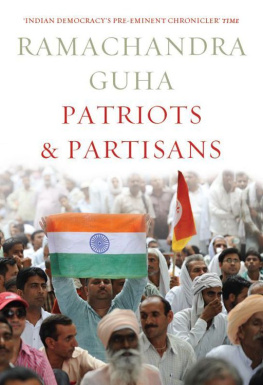Arvind Narrain - Indias Undeclared Emergency: Constitutionalism and the Politics of Resistance
Here you can read online Arvind Narrain - Indias Undeclared Emergency: Constitutionalism and the Politics of Resistance full text of the book (entire story) in english for free. Download pdf and epub, get meaning, cover and reviews about this ebook. year: 2022, publisher: Context, genre: Politics. Description of the work, (preface) as well as reviews are available. Best literature library LitArk.com created for fans of good reading and offers a wide selection of genres:
Romance novel
Science fiction
Adventure
Detective
Science
History
Home and family
Prose
Art
Politics
Computer
Non-fiction
Religion
Business
Children
Humor
Choose a favorite category and find really read worthwhile books. Enjoy immersion in the world of imagination, feel the emotions of the characters or learn something new for yourself, make an fascinating discovery.
- Book:Indias Undeclared Emergency: Constitutionalism and the Politics of Resistance
- Author:
- Publisher:Context
- Genre:
- Year:2022
- Rating:4 / 5
- Favourites:Add to favourites
- Your mark:
Indias Undeclared Emergency: Constitutionalism and the Politics of Resistance: summary, description and annotation
We offer to read an annotation, description, summary or preface (depends on what the author of the book "Indias Undeclared Emergency: Constitutionalism and the Politics of Resistance" wrote himself). If you haven't found the necessary information about the book — write in the comments, we will try to find it.
Arvind Narrains book is an excellent analysis of the present-day reality of India he signs off in the last chapter with a positive note about the multiple ways to counter the grave threats. A must read for lawyers and non-lawyers alike.
Mihir Desai, senior advocate and human rights lawyer
Analytically sharp and empirically robust, Arvind Narrains Undeclared Emergency throws a sharp focus on the punitive nature of the legal regime, the criminalisation of dissent and the power exercised by the mob in contemporary India. All those who care for the future of our Republic should read this book.
Ramachandra Guha, historian and public intellectual
This book is perhaps the first to capture the legal armature of the Indian state in the process of its ongoing metamorphosis into a Hindu-supremacist state The reader is invited to be, not a mourner at a funeral, but a fighter for change A book that illuminates and inspires, it is an urgently needed resource for young Indians.
Kavita Krishnan, secretary, AIPWA; politburo member, CPI-ML
A powerful historical chronicle of the tumultuous events between May 2014 to the present It is at once a comprehensive, well researched and richly indexed book as also a passionate call to all those who are committed to constitutional values to fight against the totalitarian state from consolidating itself.
V. Suresh, general secretary, Peoples Union for Civil Liberties
In 1975, the Indira Gandhi government declared Emergency in India, unveiling an era of State excesses, human rights violations, the centralisation of power and the dismantling of democracy. Nearly half a century later, the phrase undeclared emergency gathers currency as citizens and analysts struggle to define the nature of Indias present crisis.
In Undeclared Emergency, Arvind Narrain presents a devastatingly thorough examination of the nature of this emergencya systematic attack on the rule of law that hits at the foundation of a democracy, its Constitution. This clear-eyed legal analysis of its implications also documents an ongoing history of constitutional subversion, one that predates the Narendra Modi-led NDA governmenta lineage of curtailed freedoms, censorship, preventive detention laws and diluted executive accountability.
Is history repeating itself then? Not quite. This book is an account of an inaugural era in Indian history. Narrain shows that the Modi government, unlike the Congress government of 1975, draws on popular support and this raises the dangerous possibility that todays authoritarian regime could become tomorrows totalitarian state.
A lament, the Undeclared Emergency is also a war cry. It charts an alternative inheritance of resistance, acts big and small from the Emergency of 1975, the current day and times long gone. Dissent, he says, is an Indian tradition.
The Second Coming is at hand, and Narrain reckons that we have a responsibility to determine what it will look like.
Arvind Narrain: author's other books
Who wrote Indias Undeclared Emergency: Constitutionalism and the Politics of Resistance? Find out the surname, the name of the author of the book and a list of all author's works by series.

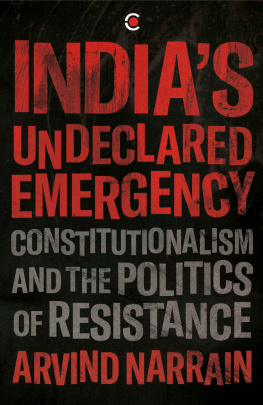

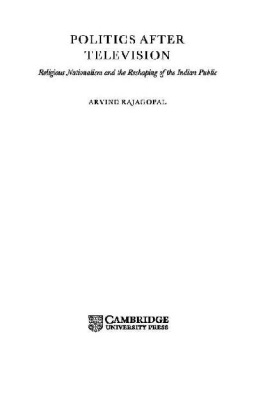
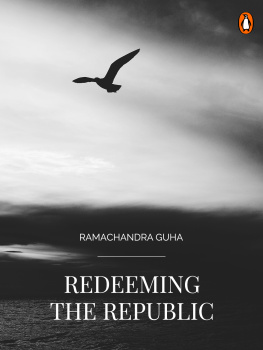
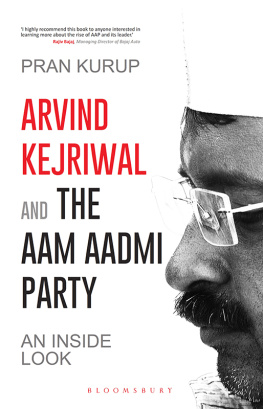
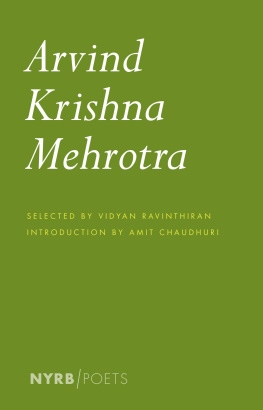
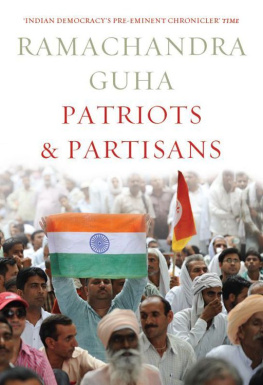
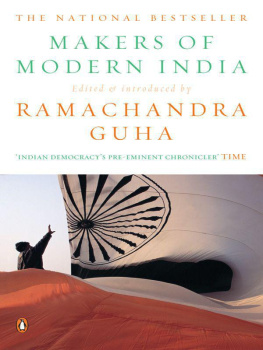
![Arvind Matharu [Arvind Matharu] - Understanding Cryptocurrencies](/uploads/posts/book/119680/thumbs/arvind-matharu-arvind-matharu-understanding.jpg)
